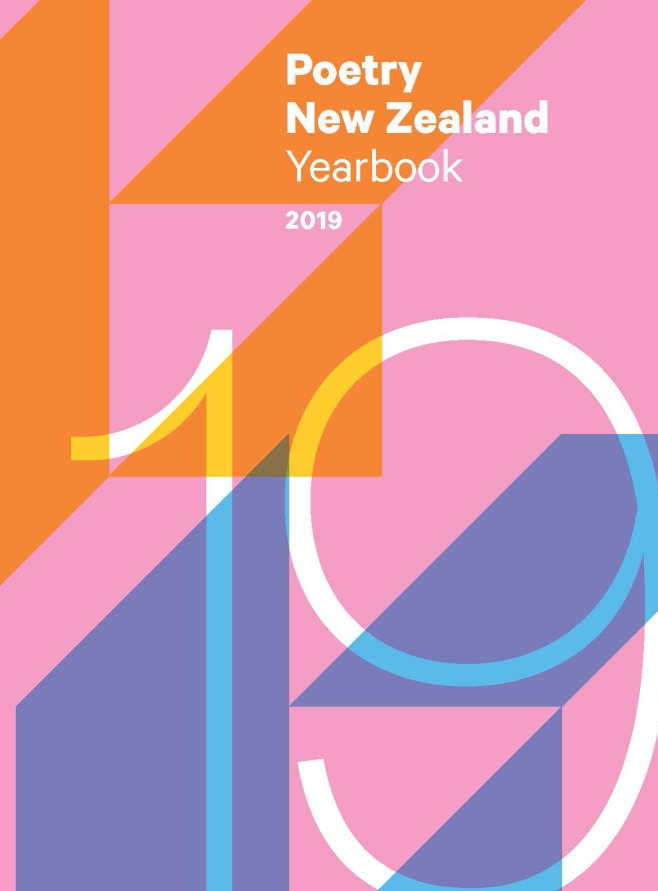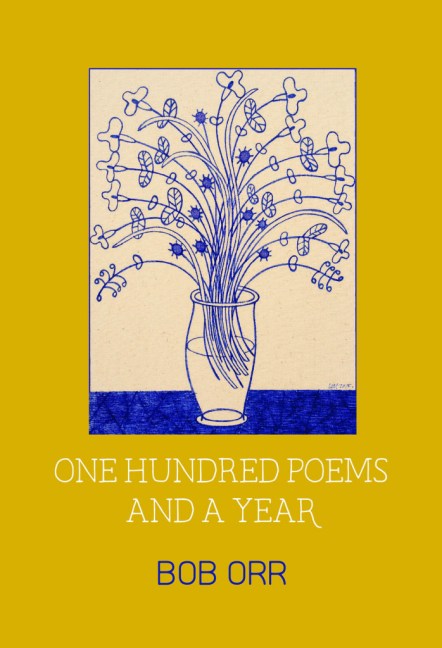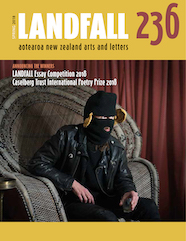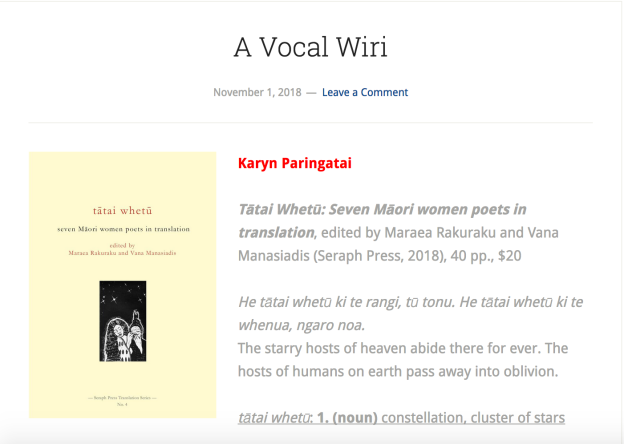
Poetry New Zealand Yearbook 2019
editor Jack Ross, published by Massey University Press
Poetry New Zealand Yearbook always offers a substantial selection of poetry. This issue includes essays, reviews and the results of two poetry competitions, along with poems from new and established poets. I started reading the issue – I always dip and dive into literary journals – and made notes, gathering the poems that ‘spoke to me’. But then I hit the rest button and realised I was running on empty post big project. I have lain on a couch for a week and stared at the sky and after the horrendous terrorist event in Christchurch everything feels different. Because everything must be different. What happens when I pick up this journal again with a raucous bust-up of questions in my head: How to live? How to speak? How to connect? How to write a poem? How to run a blog? How to widen us and make room for past, present and future, to celebrate the good things and challenge the rest?
I picked up Poetry New Zealand again and started at the first page. No dipping and diving. Just tracking an alphabet of voices and letting poetry work its magic.
Certain poems set me musing. Marisa Cappetta‘s ‘Homeless like bones’ is both an anchor and a kite. This poem is worth the buying the book for, as a keepsake, a drifting catalyst.
My house is like a thing that flies
a warm bodied creature with wooden wings and moss
stuffed in the cracks to keep out
the draft at high altitudes.
Every night I burrow into its feathers.
Ria Masae’s magical ‘Children’s Eyes’ takes me back to a childhood looking, to stepping off from the knowable physical world to a world without limits or rules, a world bright with colour and possibilities. The poem is the thread that stitches child to adult.
In autumn
I would walk from school
under a canopy of different shades of Papatuanuku.
The flakes of her skin
drifted gently from her offspring trees
and whispered the earth’s secrets
into my childish ears
before playfully licking my cheeks
and falling to the ground
paving my golden-leaf road home.
Emma Neale’s poetry always catches hold me because its musical effects equal the craft of a silversmith – intricate, alluring, bright. However Emma’s ‘The TastiTM Taste Guarantee’ leads me in a different direction as the poem showcases her ability to write wit in all seriousness. She explains why, in the form of a letter, she has eaten the museli bar destined for her child’s lunchbox. The ending is a knockout – you get wit and seriousness with her characteristic deft musical touch.
All of which I guess
is just to say
(hey WCW, still got it!)
since you asked, I would like to know
how closed-grained and sweet-glazed
is the happiness of the future
assuming there is happiness in the future?
Because sometimes, when I do catch a glimpse
of time’s webbed, oil-black wings,
its tangerine-stained, crazed-bullet teeth,
I’m so stunned and dread-run
that even eating a candy bar
in Supergrain disguise
seems to be a legitimate opposite
to inaction.
Vaughan Rapatahana has poetry here in te reo along with a poem, ‘Rangiaowhia, 1864’, that takes us back to a massacre, an event we should become aware of in school, an event that returns us to the pronouns we and us. Again the questions compound. How to link the past to the future in order to understand the present? How join hands and stand and listen. What to do with the breaking hearts?
who knows about the murders at Rangiaowhia?
not the majority in this country nowadays.
who remembers the burned children?
not the majority in this district.
who believes the word of the survivors?
only a minority outside that town.
alas
alas
alas.
I read Tracey Slaughter’s ‘archealogical’ and I just wanted to hear her read it aloud because it is such a sumptuous aural display of what words can do in a poem. The sound effects are as effective as the detail and the mood, and the surprising arrival of individual words; I am right back in the fumbling sexual awakenings of adolescence. I can’t wait to read Tracey’s debut collection out this year with VUP.
When the bell rings we are archealogical, cutting
through the harbour home, shins uprooting litres of slush
& levelling bubbles & barbs of creatures triggered back
into their chinks of flood. Their pinprick beds turn the sand
grid silver before your ranchslider shines up the low slope – beyond
your scalp the view’s not a bad excuse for stars. Inside we crumble
from the waded calves, the tight-knit glisten of mud scuffed
off by inches, the silhouette of grains slid of our sip.
Sue Wootton also draws me into the musicality of her writing, the luminous detail and the rendering of miniature stories and settings. ‘Anywhen’ is an electric read – taking me back to the 1960s and a foreign magazine sent to me by my French penfriend with Mary Quant products and miniskirts and velvet every way you looked.
Anywhere and anywhen
you unzip the hip-knock swing-along
to see what pops up
to hear what’s blowin’ in the wind.
You write past midnight on the blue machine
with your Mary Quant eyelashes a-droop
and the moon watches you and you watch
the moon. You’d like to land on the moon
but in colour. Page after page comes back to earth
with a crumpled thump
I have never read any poems by Sigred Yamit before and now I am keen to track down more because ‘Sweater’ blew the top off my head off (to borrow from Emily Dickinson) and really this skinny poem is sharp and sweet and utterly original and you have to read the whole thing to get the effect so I will just give you the start.
I’m supposed to write
something poignant
earth-shattering
eradicate cancer
but all I can think of
is my itchy red sweater
and how I fucking love it
and sad I get
when a boy is more
beautiful than me
I also loved Zuo You’s poem ‘I accepted His Apologies’ because it made me laugh out loud. Just two verses. Here is the second one.
The cold noodles I ordered
turned into hot ones
as if by magic.
After lunch
I posted a five-star review on the food.
Of all the finalists in the two poetry competitions I was hooked by Wes Lee‘s winning tour-de-force of a poem, The Things She Remembered #1’. Phrases accumulate like a rollercoaster memory pulling you along in a blaze of sharpness and surprise. I was equally gripped by secondary school winner, Aigagalefili Fepulea’i-Tapua’i’s ‘275 Letters to Southside’. The poem, also sharp and rhythm rich, makes it clear that ‘Auckland is not the same place as South Auckland’.
Such is the strength of anthologies and literary journals: they can poke your skin and make you feel things – reading these poems I got sad, I laughed out loud and I got lost in trains of thought. Not everything hooked me but there is superlative poetry on offer. It was just what I needed. Now for the essays and reviews ….
Massey University Press page















